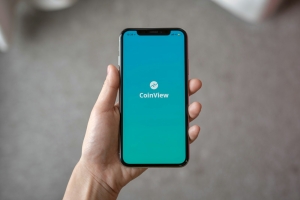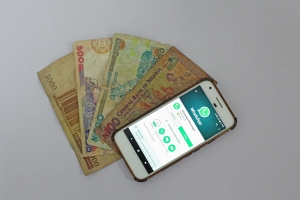Starting A Money Lending Business Using Financial Technology in Nigeria
Get Started
Call-to-action
Tel: (+234) 802 320 0801, (+234) 807 576 5799
Email: info@Stonehillresearch.com
Office Address: 5, Ishola Bello Close, Iyalla Off Street, Alausa, Ikeja, Lagos, Nigeria
Introduction
Globally, the financial institutions faced the global financial glitch in 2007-2008, that countless loneliness then urgently demanded to review and rebuild the insurance of financial institutions, which was almost gradually exhausted. In the past, these institutions have traditionally been the backbone of all types of financial transactions and other financial activities. From that point on, instability and trust in banks became a major problem as personal loans were rejected and businesses faced credit and mortgage defaults. So financial technology, abbreviated as Fintech, left the field of technology to take advantage of the financial crisis and the huge technological development that took place at that time to conquer the whole world. As a result, financial institutions began to embrace technology and promote the fragmentation of technical services and innovations to improve their services and sustain their business. As a result, approximately 60% of all global retail banking transactions are conducted online and the financial sector is one of the most digitized sectors in the world.
Financial Technology (Fintech) in Nigeria has grown rapidly without barriers over time, especially since the Central Bank of Nigeria strengthened the payment system in 2007 with the implementation of the Payment System Vision 2020, which brought significant improvements in the use of cards. ATMs, POS terminals, electronic money transfers and mobile payments. These renovations, combined with factors such as a young and tech-savvy population, high mobile phone usage, broadband adoption, and a large unbanked population, led to the emergence of a number of fintech companies whose businesses focused on these technologies. Between 2011 and 2018, investment in the Fintech industry was more than 248,869,349.27, indicating that Fintech is becoming a major player in the Nigerian financial sector, despite the difficult operating market environment in the country. With the Covid-19 pandemic, which has increased reliance on digital technology, as Fintech solutions have offered accessible, affordable and quick solutions, especially during the imposed lockdown,
Despite this growth, Fintech is not fully embraced in Nigeria because there are different forms Adoption sentiment remains low in a country where the informal sector continues to thrive and more than half of the population remains unbanked or without financial services. The industry is relatively new in the world compared to its counterparts, and older people are not as technologically savvy as younger people and still prefer conventional banking. In addition, their disruptive business models and operations are still new and therefore seen as threats, substitutes or competitors to the traditional players who dominate the financial services.
Benefits Of a Money Loan Business Focused on Financial Technology.
Nigeria’s financial sector has embraced new developments in the global financial world, especially in relation to technology. The country’s digital payments industry is still underutilized, and several Fintech companies can seek opportunities and bridge the country’s huge financial gap. According to Frost and Sullivan (2018), the Fintech industry in Nigeria has 210 and 250 companies respectively, and its revenue will reach US$543.30 million in 2022 from US$53.10 million in 20177. As the country’s mobile and internet penetration continues to grow, it has created an opportunity to support online banking payments, improve access to financial services for the unbanked and underbanked population, and improve financial literacy. The financial services sector will also receive significant support from the rapidly growing Fintech industry, as Nigeria offers an important market for digitized unsecured loans and Nigeria’s low creditworthiness presents significant opportunities. According to the World Bank, Nigeria’s domestic credit to the private sector (as a percentage of GDP) was 0.9 percent in 2018, compared to 138.8 percent for its sub-Saharan African (SSA) partners, such as South Africa. the global average was 129.7 percent. However, it should be noted that the Fintech sector in Nigeria has the potential to reach a population that is not yet financially included. The NFIS (2012) set a target of 80.0 percent (formal and informal) financial inclusion and 70.0 percent formal financial inclusion by 2020. According to the NFIS 2018 strategy paper, 63.2 percent of Nigeria
Planning A Fintech Money Lending Business in Nigeria
Starting a fintech money lending business is an exciting venture that can yield significant financial rewards. But like any business, success requires careful planning and execution. In this comprehensive guide, we guide you through the most important steps to start your fintech financial lending business and ensure its long-term success.
Do market research: Before diving into the world of fintech lending, it is important to understand your target market and their financial needs. Conduct thorough market research to identify your target audience, assess demand for loan services and understand your competition. Consider factors such as demographics, income levels and borrowing habits to tailor your offer to the needs of your target audience.
Understanding the Legal Requirements: Navigating the regulatory landscape is essential when starting a fintech moneylending business. Nigeria has specific regulations on lending practices and financial services. Familiarize yourself with these rules and make sure your business meets all legal requirements. This may include obtaining licenses, enforcing rate limits and implementing data protection policies to protect customer data.
Choose the right technology: The success of your fintech money lending business depends on the technology you choose. Choose a fintech platform or develop a custom solution that meets your business needs and offers a perfect user experience. Look for features like automated loan processing, real-time data analytics and secure payment processing to streamline your operations and improve customer satisfaction.
Develop a risk management strategy: Effective risk management is essential to borrowing money. Develop a sound risk management strategy to assess the creditworthiness of borrowers and reduce the risk of default. Use data analytics and machine learning algorithms to make informed lending decisions and monitor the evolution of your loan portfolio. Implement security measures to protect against fraud and cyber threats and ensure the integrity of your lending platform.
Focus on getting and keeping customers:
Customer acquisition and retention are essential to the success of your fintech money lending business.
Develop a marketing strategy to increase awareness of your services and attract potential borrowers.
Use digital channels such as social media, search engine optimization and email marketing to effectively reach your target audience.
Provide excellent customer service and personalized experiences to build trust and loyalty and encourage business.
Create a financial plan: Develop a comprehensive financial plan that outlines your revenue model, costs and expected profits. Consider factors such as the cost of the loan, interest rates and operating costs to ensure the financial viability of your business.
Track key performance indicators such as loan yield and customer acquisition costs to monitor the success of your business and make informed decisions about future growth and expansion.
Keep improving your business: The fintech industry is constantly evolving and successful businesses must adapt to stay ahead of the competition. Continuously monitor market developments, technological developments and regulatory changes to identify opportunities for improvement. Solicit feedback from customers and stakeholders to identify areas for growth and innovation. Invest in training and development to keep your team up to date with the latest industry trends and best practices.
Example Of Fintech Business Model
Model 1:
Alternative credit rating system Credit scores are an important concept that allows financial institutions to determine how risky it is to lend their services. Therefore, people with lower credit scores have to pay higher fees and interest, while people with higher credit scores have to pay less and get a loan much easier. Building a credit score is not that easy these days and many people suffer because of it.
The global alternative credit rating market is expected to reach $7.8 billion by 2027, growing at a CAGR of 24.4%.
Fintech’s alternative credit scoring business models allow users to check a lender’s creditworthiness using relative, up-to-date and easily accessible data. This is done by tracking their digital footprint.
Traditional credit rating often excludes failed banks. Alternative data such as social media activity, phone calls and utility payments can increase loan approvals for these groups by 20%This is why this is a Fintech financing model used by many companies across the market.
This is also very useful. Not to mention, it is one of the top fintech solution ideas you can find today. Some popular alternative scoring apps are: Nova Credit, Canopy, Cortera
Who Should Choose This Fintech Business Model?
Startups and financial institutions are working to expand financial inclusion by providing credit to underserved markets, such as individuals without traditional credit histories.
Why choose this business model?
An alternative credit scoring model uses non-traditional data (such as utility payments, social media activity and mobile phone usage) to assess creditworthiness, allowing lenders to reach a wider customer base.
Advantages: Expands access to credit for underserved segments.
Reduces the use of traditional credit scoring methods.
Default rates may be reduced due to improved risk assessment.
Cons:
Data protection issues related to the use of personal data.
Regulatory challenges in certain jurisdictions.
Results can be trending if properly managed.
Model 2:
Smart Insurance Underwriting
The market for insurance solutions is huge.
There are only so many insurance companies willing to issue insurance apps. And we only have a fintech business model for the Insurtech platform.
“Intelligent insurance” It will change the way insurance companies evaluate risks and price policies. It uses technology, data and analytics to create a more efficient, accurate and customer-centric process.
Here are some key aspects of smart insurance business:
Telematics data public data Alternative data
What makes this model great is the huge market and the innovation it offers.
The global Insurtech market is expected to reach USD 341.36 billion by 2026, growing at a CAGR of 16.3%. 73% of consumers are willing to share information for personalized insurance experiences. Mobile devices and telematics data can adjust insurance premiums based on driving habits or health indicators. And you can take it to the next level with your custom solution.
Who Should Choose This Fintech Business Model?
Insurance companies looking to innovate and improve risk assessment through artificial intelligence, machine learning and big data analytics.
Why choose this business model?
This fintech business model allows you more accurate risk assessment, personalized insurance and dynamic pricing based on real-time data, improving efficiency and customer satisfaction.
Advantages:
Improved risk analysis accuracy. Customized and flexible insurance offers.
Better customer experience and satisfaction.
Cons:
High initial investment in technology.
Privacy and security considerations.
Potential regulatory hurdles.
Model 3: Peer-to-peer lending
Here it is the popular P2P or peer-to-peer lending.
The global P2P lending market is forecast to reach $468.9 billion by 2025 at a CAGR of 25.5%. This makes it one of the most popular business models in the financial industry. After all, it has become people’s favorite business model because the development of loan platforms is low.
For those who don’t know, P2P platforms offer loans to borrowers with low credit or those looking for lower interest rates than traditional banks. This is often realized through the development of mortgage applications.
The platform is adorned with incredible features, from flexible repayment to instant loans. Thanks to the advantages offered by the platform, the market is full of excellent loan applications.
In fact, global growth is amazing. China currently dominates the P2P lending market with a 70 percent share, followed by the United States and the United Kingdom (PwC).
This can be an ideal business model for fintech startups looking to establish themselves in the market. Now is the time to add your business name to the most popular loans. Who Should Choose This Fintech Business Model?
Entrepreneurs are interested in creating platforms that connect borrowers directly with investors, bypassing traditional financial intermediaries.
Why choose this business model?
This fintech business model offers borrowers an alternative financial solution while offering investors higher returns compared to traditional savings accounts.
Advantages:
Credit option for those who may not qualify through conventional banks.
Potentially higher returns for investors.
More competitive interest rates for borrowers.
Cons:
Credit risk for investors.
Regulatory challenges and compliance.
Dependence on the platform’s ability to match borrowers with investors.
Licensing, Regulatory and Compliance Requirements for Fintech Companies in Nigeria
NIGERIA currently does not have a designated fintech regulatory authority. Fintech regulators in Nigeria deal with many other sectors in Nigeria. The main regulators of the fintech sector in Nigeria are CBN, Nigerian Deposit Insurance Corporation (NDIC), SEC, Nigerian Communications Commission (NCC), National Information Technology Agency (NITDA) and National Insurance Commission (NAICOM). ). ), the Federal Competition and Consumer Commission (FCCPC), the Corporate Affairs Commission (CAC), the Federal Inland Revenue Service (FIRS), the Nigerian Data Protection Commission (“NDPC”) and the National Authority for Technology Acquisition and Advancement ( “NOTAP”). the extent of the supervision of the regulatory authority depends mainly on the transactions or fintech services that the fintech company is engaged in. CBN: The CBN is responsible for the regulation of financial services in Nigeria. The CBN is the principal regulatory authority tasked with licensing banks and other financial institutions under the Banking and Other Financial Institutions Act, 2020 (BOFIA). Fintech companies offering financial services to Nigerian consumers are required to obtain appropriate licenses and comply with applicable CBN guidelines.
NDIC: NDIC is responsible for insuring all deposit liabilities of banks and other depositories authorized to operate in Nigeria. Fintech companies offering mobile banking services to Nigerian consumers, including savings accounts such as checking and savings accounts, must register with the NDIC. This is in accordance with section 15 of the NDIC Act 2006.SEC is the securities and capital markets regulator under the Investments and Securities Act 2007 (ISA) of Nigeria. Fintech companies that want to raise capital from the capital markets must register their securities with the SEC and comply with the ISA and the rules made under it. In addition, in May 2022, the SEC published rules on the Issuance, Offering Platforms and Custody of Digital Assets (“Digital Assets Rules”).
Under the Digital Assets Rules, the SEC is authorized to regulate the issuance of digital assets such as securities, the registration of digital assets trading platforms, digital asset managers, virtual assets and digital asset exchanges.
CAC: The CAC is the responsible regulatory authority. for the establishment and statutory inspection of all companies in Nigeria. The CAC formulates the rules for doing business in Nigeria and ensures that Nigerian companies comply with the requirements of the law. Fintech companies (including banks) must register with the CAC to carry on business (as well as separately from business) in Nigeria, unless otherwise exempted from this requirement by the Minister of Trade, Industry and Investment (see paragraphs 78 and 80). CAMA 2020).
NCC: The Nigerian Communications Act 2003 empowers the NCC to regulate the telecommunications industry in Nigeria. Therefore, Fintech companies that offer mobile phones or provide services related to the use of mobile phones are subject to the NCC and must obtain licenses from the NCC. For example, mobile payment companies must obtain an NCC license under the Value-Added Services (VAS) Licensing Framework. The NCC VAS Regulation defines a VAS provider as a person or organization that offers value added mobile/fixed services.
NITDA and NDPC: NITDA is empowered under the NITDA Act 2007 to develop, regulate and advise on information technology in Nigeria. regulatory standards, guidelines and practices. In line with its regulatory mandate, NITDA issued the Nigerian Data Protection Regulations (the “Regulations”) in 2019 and subsequently the Implementation Framework (the “Framework”) in 2020. The purpose of the regulation and its implementation framework is to ensure the rights of natural persons to data protection and to facilitate the safe execution of transactions related to the exchange of personal data. However, in June 2023, the Nigerian Data Protection Act (NDPA), Nigeria’s main data protection law, was signed into law.
The NDPA established the NDPC as a body to regulate the processing of personal data by data controllers and data processors in Nigeria. Functionally, the NDPC regulates the processing of personal data in accordance with the regulations, the framework and the NDPA, while the NITDA regulates cloud services or data centers used for data storage and processing in Nigeria. The regulation of NDPA and NITDA extends to Fintech companies that handle, process, store or transmit data from data subjects located in Nigeria. NAICOM: NAICOM was established under the NAICOM Act 1997 and is responsible for the management, regulation and inspection of the insurance industry in 1997. Nigeria. Therefore, if an Insurtech company is engaged in insurance business, it requires a license from NAICOM. FCCPC: The FCCPC was established under the Federal Competition and Consumer Protection Act of 2018 (FCCPA). The FCCPA prohibits anti-competitive practices in the Fintech industry. These activities include price fixing, market sharing and exclusive agreements that have the effect of restricting competition. However, it should be noted that FCCPC regulatory oversight only applies to Fintech companies that are not banks or other financial institutions as defined by BOFIA. It comes amid growing disputes over who has the ultimate power to regulate banks and other financial institutions. While the FCCPA seeks to preempt other laws in all matters of competition and consumer protection, BOFIA specifically limits the application of the FCCPA and all products arising from the activities of banks and other financial institutions. In this regard, the BOFIA CBN regulation supersedes the FCCPC regulation in matters related to financial products and services.
NOTAP: NOTAP is an agency under the Federal Ministry of Science and Technology of Nigeria established by the NOTAP Act N68, LFN 2004. NOTAP is mandated to regulate and promote the acquisition, transfer and domestication of foreign technology in Nigeria. The NOTAP regulation applies to Nigerian Fintech companies engaging in technology acquisition and technology transfer agreements with foreign entities as part of their business activities.
FIRS: FIRS is the federal tax regulator in Nigeria. Fintech companies must pay income tax, withholding tax, value added tax and stamp duty to the government through FIRS. Income taxes are paid to the state (not federal) Internal Revenue Service in the place (state) where the employee works.
NDPC: NDPC is the data protection authority in Nigeria. The Nigerian Data Protection Act 2023 (NDPA) empowers them to make data processing regulations for data controllers and processors in Nigeria. The NDPA extends to Nigerian Fintech companies that process, process, store or transfer the data of data in Nigeria. In this regard, Fintech companies must comply with the provisions of the NDPA and subsequent regulations that may be issued in Nigeria. NDPC.
Key Regulations and Approaches
There is no single regulation targeting fintech players in Nigeria. The Nigerian Fintech space is a mix of different areas.1 regulator of Fintech in Nigeria, has issued the following guidelines for its operations:
CBN Guidelines for Open Banking in Nigeria, 2023;CBN Framework for Regulatory Sandbox Operations, 2020 (“Sandbox Operations Framework”);CBN Guidelines on Mobile Phone Services in Nigeria, 2015;CBN Guidelines on the Operation of Electronic Payment Channels in Nigeria, 2020;CBN Guidelines on Licensing and Regulation of Payment Service Banks in Nigeria, 2018;CBN Regulatory Framework for the Use of Informal Support Services Data in Financial Services in Nigeria, 2018;Nigerian Payment of Bills CBN Regulation, 2018;The CBN’s Risk-Based Cyber Security Framework and Guidelines for Depository Banks and Payment Service Providers, 2018;CBN Microcredit Policy, Regulatory and Supervisory Framework, 2011;Revised CBN Guidelines for Financial Companies in Nigeria, 2014;CBN Guidelines on the Operation of Electronic Payment Channels in Nigeria, 2016;CBN Guidelines on International Mobile Transfer Service in Nigeria, 2015;CBN Guidelines on International Money Transfer Services in Nigeria, 2014;Nigeria Public and Private Sector Electronic Payments and Collections CBN Regulation, 2019;CBN Regulation on Direct Debit Scheme in Nigeria, 2018; and CBN Regulatory Guidelines on e-Naira, 2021.What are the registration requirements for fintech company in Nigeria? For a fintech company to fully operate in Nigeria, the company must register with the Corporate Affairs Commission (CAC) as a Nigerian legal entity. After submitting the necessary applications and necessary documents, the company must be licensed by the Central Bank of Nigeria or the relevant regulatory authority. However, if a company has foreign participation, it must obtain a license, register with the Nigerian Investment Promotion Commission (NIPC) and the National Office of Technology Acquisition and Promotion (NOTAP).
Fintech companies that want to engage in money lending must obtain a license from various government agencies that regulate money lending.
Fintech Licensing Duties and Procedures
Licensing for a FinTech business depends on the type of license the business is applying for. A fintech company can be either a digital bank, a payment service bank (PSB) or a payment service provider (PSP). Examples of fintech licenses are:
Alternative Loans / Digital Loans (2.5 billion equity) Digital Crowdfunding Intermediary Licenses (100 million equity) Digital Banking Licenses with a subset of licenses such as –a). Exchange and processing licenses – two billion share capital). Mobile phone operator licenses – two billion share capital).
Payment solutions service provider licenses – one hundred million share capital).
Licenses for providers of payment terminals – one hundred million share capital).
Super-agent banking licenses – 50 million share capital). Payment service bank licenses – five billion share capital). Currency and Money Transfer Licenses – Two billion share capital Insurance technology licenses are divided into life insurance (two billion share capital), non-life insurance (10 billion share capital), reinsurance (twenty billion share capital), composite insurance (eighteen) billion share capital). uppercase).
Robo-Advisor Licenses – Five Million Equity)
How much does it cost to get a Fintech license in Nigeria?
Below are the various official fees to be paid to apply for different types of Fintech licenses in Nigeria.
Exchange and Processing License: An application fee of N100,000, N1 million closing refund amount to the CBN and a license fee of N1 million must be paid before the final license is issued.
Mobile Phone Operator License: Application fee of N100,000 N2 billion back to CBN and license fee of N1,000,000 to be paid before the final license is issued.
Payment Services (PSS): Application fee of N100,000, payment of a refundable amount of up to 250 million (depending on which license the company wants to obtain) in Escrow Bank to CBN and a license fee of N1,000,000 before the final license is issued. Payment Terminal Service Provider (PTSP) License: N100,000 Application Fee, N100,000 license fee and N1,000,000 license fee refundable to CBN
Payment Solution Provider (PSSP) License: N100,000 non-refundable application fee, CBN payment of the amount to be returned to 100 million NN; and a license fee of N1 million to be paid before the final license is issued. Super-Agent License: N100,000 non-refundable application fee, payment of a refundable sum of N50 million in guarantee to the CBN and a license fee of N1 million to be paid by the applicant before the final license will be issued.
Categories Of Financial Tech Businesses in Nigeria
Like any other career opportunity that has different segments or categories, fintech. Fintech has different segments by which they are classified and they are;
Payments
This is the most common category in Nigeria and most businesses have adopted this payment channel. Examples of players include Baxi Pay, Palm Pay, Paga, Cellulant, Flutter wave, eTranzact, Pay stack, Remita and OPay.
Digital Banking
Fintech companies in this area offer banking services, but they are simpler than a traditional bank. An example of such a company is Kuda Bank.
Loan
Businesses in this area offer a digital lending industry to provide small loans to consumers who have the ability to repay. Examples of companies in this industry include Renmoney, Paylater, Page, Aella, Credit Direct and Zedvance.
Savings and Investments
These are fintech companies that help structure savings and investments. Companies using this service include PiggyVest (formerly Piggybank), Cowrywise, Farmcrowdy, Kolopay, Risevest, Carbon and Eyowo.
Procedures To Obtaining License/Register with Federal Consumer Protection Council (FCCPC) As A Fintech Operator in Nigeria
Digital loan is a profitable business that helps people to fulfill their dreams. As in any country, lending is a highly regulated industry and a license from the Federal Competition and Consumer Commission (FCCPC) is required to apply for a loan.
Although it was not until 2022, when the activities of unethical lenders became extremely harmful to Nigerians and the economy, the FCCPC issued a limited interim regulatory/registration framework whereby all digital lending companies in Nigeria were licensed by the FCCPC. issued a 90-day ultimatum to resume uninterrupted operations. This Limited Interim Regulatory/Registration Framework for Digital Lending is the Commission’s approach to regulate the digital lending space and provisions for approval/registration requirements for the practice of digital lending in Nigeria. This FCCPC action also helped regulate lenders, protecting consumers’ rights from violations. The FCCPC has also repeatedly assured digital lenders that the license protects digital lenders as well as consumers. It is worth remembering that we are all primarily consumers of products and services.
The FCCPC, previously led by CEO Babatunde Irukera, described the regulatory framework as the first of its kind and the first of many steps to create a standard that will prevent predatory digital lenders.
Getting an FCCPC license is difficult, but it shouldn’t be.
The FCCPC license is considered one of the most difficult licenses in Africa. But we have done some serious work to compile all the necessary requirements and information you need to get a mandatory FCCPC license. The guide we wrote is one that lenders who use Lender loan management software can get their FCCPC license effortlessly.
FCCPC Licensing Requirements for Digital Lenders
A certified copy of the applicant’s Certificate of Incorporation (visit cac.gov.ng).
A brief description of the applicant’s loan activities and, if necessary, their groups.
Organization chart showing the nationality and location of actors, key personnel and other key officials related to the company (in case of dual nationality, both and the nationality of main residence should be indicated) Official name and address of the lender authorized to receive all correspondence and services on behalf of the company.
Details of the source(s) of funding, including equity, debt or other (Source information must include the nature of the instrument, the capital investment, source identification information and the nature of the source business. If the source is an individual, its nationality.) The interest rate and any applicable service charges, including the method of calculating the loan balance. Find out what we think about interest rates.
Proof of membership of any commercial or professional body (e.g. moneylenders’ association).
List of digital loan programs currently in use or in production. (The Commission will be notified before major changes to existing applications or the introduction of new applications.)
Information on affiliations with other domestic, regional or global companies, agencies or similar enterprises. Service Level Agreements with service providers that cover operations but not management.
Testimonials about feedback and redress mechanisms of complaints.
Conditions of Use of the Applicant.
Applicants’ privacy policy.
Certificates of data control compliance and data control report submitted to the Nigerian Data Protection Bureau (NDPB).
Proof of tax payment or tax exemption, if applicable.
Loan authorization.
4 Steps to Obtaining an FCCPC License
Step 1: First, download the FCCPC Temporary Digital Lending Guidelines Form, or “Application Form,” which you can access here. Then go to the next step.
Step 2: Go to the second part of the application and complete the DLG 001 form. This form requires you to enter basic information such as name, physical address, phone number and email address of the lending company, website and other general categories. The form contains detailed explanations for each category and explains the necessary information and what it means.
Step 3: Now that you have filled the application form, you need to submit the document requirements mentioned in your application. Step 4: The final step This registration process includes a form AKA form DLG 002, which must be signed by two directors of the loan company. This indicates that all the information provided is correct and the applicant has entered all the information correctly. regulatory requirements.
3 Key Things to Remember
Applicants may register up to five (5) applications.
Applicants who wish to file additional applications must pay Five Hundred Thousand Naira (₦500,000) for each additional application.
All registered digital currency borrowers must notify the Commission of any changes to the information they provided during initial registration within fourteen (14) days of the change. They must
notify the Commission in writing explaining the nature of the change
return the duly completed form (Forms 001 and 002) send all relevant documents relating to such change3 main points to note
Applicants can record a maximum of five (5) statements.
Applicants who wish to file additional applications must pay Five Hundred Thousand Naira (₦500,000) for each additional application.
All registered digital currency borrowers must notify the Commission of any changes to the information they provided during initial registration within fourteen (14) days of the change. They must notify the Commission in writing explaining the nature of the change
return a properly completed form (Forms 001 and 002) send all relevant documents related to such change
According to the FCCPC, below are the main forms. you must use if you need to obtain a license.
Procedures To Obtaining License/Register with Federal Consumer Protection Council (FCCPC) As A Fintech Operator in Nigeria
Digital loan is a profitable business that helps people to fulfill their dreams. As in any country, lending is a highly regulated industry and a license from the Federal Competition and Consumer Commission (FCCPC) is required to apply for a loan.
Although it was not until 2022, when the activities of unethical lenders became extremely harmful to Nigerians and the economy, the FCCPC issued a limited interim regulatory/registration framework whereby all digital lending companies in Nigeria were licensed by the FCCPC. issued a 90-day ultimatum to resume uninterrupted operations. This Limited Interim Regulatory/Registration Framework for Digital Lending is the Commission’s approach to regulate the digital lending space and provisions for approval/registration requirements for the practice of digital lending in Nigeria. This FCCPC action also helped regulate lenders, protecting consumers’ rights from violations. The FCCPC has also repeatedly assured digital lenders that the license protects digital lenders as well as consumers. It is worth remembering that we are all primarily consumers of products and services.
The FCCPC, previously led by CEO Babatunde Irukera, described the regulatory framework as the first of its kind and the first of many steps to create a standard that will prevent predatory digital lenders.
Getting an FCCPC license is difficult, but it shouldn’t be.
The FCCPC license is considered one of the most difficult licenses in Africa. But we have done some serious work to compile all the necessary requirements and information you need to get a mandatory FCCPC license. The guide we wrote is one that lenders who use Lendsqr loan management software can get their FCCPC license effortlessly.
FCCPC Licensing Requirements for Digital Lenders
A certified copy of the applicant’s Certificate of Incorporation (visit cac.gov.ng).
A brief description of the applicant’s loan activities and, if necessary, their groups.
Organization chart showing the nationality and location of actors, key personnel and other key officials related to the company (in case of dual nationality, both and the nationality of main residence should be indicated) Official name and address of the lender authorized to receive all correspondence and services on behalf of the company.
Details of the source(s) of funding, including equity, debt or other (Source information must include the nature of the instrument, the capital investment, source identification information and the nature of the source business. If the source is an individual, its nationality.) The interest rate and any applicable service charges, including the method of calculating the loan balance. Find out what we think about interest rates.
Proof of membership of any commercial or professional body (e.g. moneylenders’ association).
List of digital loan programs currently in use or in production. (The Commission will be notified before major changes to existing applications or the introduction of new applications.)
Information on affiliations with other domestic, regional or global companies, agencies or similar enterprises. Service Level Agreements with service providers that cover operations but not management.
Testimonials about feedback and redress mechanisms of complaints.
Conditions of Use of the Applicant.
Applicants’ privacy policy.
Certificates of data control compliance and data control report submitted to the Nigerian Data Protection Bureau (NDPB).
Proof of tax payment or tax exemption, if applicable.
Loan authorization.4 Steps to Obtaining an FCCPC License
Step 1: First, download the FCCPC Temporary Digital Lending Guidelines Form, or “Application Form,” which you can access here. Then go to the next step.
Step 2: Go to the second part of the application and complete the DLG 001 form. This form requires you to enter basic information such as name, physical address, phone number and email address of the lending company, website and other general categories. The form contains detailed explanations for each category and explains the necessary information and what it means.
Step 3: Now that you have filled the application form, you need to submit the document requirements mentioned in your application. Step 4: The final step This registration process includes a form AKA form DLG 002, which must be signed by two directors of the loan company. This indicates that all the information provided is correct and the applicant has entered all the information correctly. regulatory requirements.
3 Key Things to Remember
Applicants may register up to five (5) applications.
Applicants who wish to file additional applications must pay Five Hundred Thousand Naira (₦500,000) for each additional application.
All registered digital currency borrowers must notify the Commission of any changes to the information they provided during initial registration within fourteen (14) days of the change. They must
notify the Commission in writing explaining the nature of the change
return the duly completed form (Forms 001 and 002) send all relevant documents relating to such change3 main points to note
Applicants can record a maximum of five (5) statements.
Applicants who wish to file additional applications must pay Five Hundred Thousand Naira (₦500,000) for each additional application.
All registered digital currency borrowers must notify the Commission of any changes to the information they provided during initial registration within fourteen (14) days of the change. They must notify the Commission in writing explaining the nature of the change
return a properly completed form (Forms 001 and 002) send all relevant documents related to such change
According to the FCCPC, below are the main forms. you must use if you need to obtain a license.
Limited Interim Regulatory/ Registration Framework and Guidelines for Digital Lending, 2022
The Federal Competition and Consumer Protection Commission (the Commission) is the regulatory authority responsible for, among other things, the administration and enforcement of the Federal Competition and Consumer Protection Act, 2018 (the Act).
This Limited Interim Regulatory/Registration Framework for Digital Lending is the Commission’s approach to regulating the digital lending space and makes provisions for the requirements for approval/registration to carry out the business of digital lending in Nigeria.
In exercise of the powers conferred upon it by sections 17, 18 and 163 of the Federal Competition and Consumer Protection Act, 2018 (“the Act”), and all other powers enabling it in that behalf, the Commission hereby makes the following Regulatory/Registration Framework and Guidelines –
FORM DLG 001
FCCPC Interim Digital Lending Guidelines Form 001
NB: This form should be submitted, duly completed, accompanied by the complete set of documents required under the First Schedule.
- Name of Digital Money Lender:
- Operational Business Address:
- Functional Phone Numbers:
- Email Address(es):
- Website:
- Identity and nationality of promoters, directors and initial key role players:
- Source(s) of funding including equity, debt or otherwise:
- Details of affiliations with any other companies, institutions or similar businesses, whether domestic, regional or global:
- Consultants, agents, or any person assisting with the registration process, operations, or management:
- Full details of all operational Bank Account(s) (Bank, Account Name and Account Number):
- Proposed interest rate regime and loan balance calculation methodologies:
- Any licenses authorising business to operate:
- List of all apps in operation or intended for operation (maximum of five (5) apps:
- Specify the process(es) to be utilized by the Company for digital lending services (i.e. Web, APK, any other websites or platforms utilised for the processing, receiving and payment of loans):
- Confirm that the Apps to be deployed are not designed to and will not have access to customers call logs, contacts and photos/gallery:
- Confirm that the platforms, file formats, Web links to be utilised by the Company/Apps are the same as those stated in Clause 14 above:
Initial Registration:
Notes
Procedure For Registration
- Applicants are required to download and completely fill out the Forms (Form 001
and 002) from the Commission’s website.
- Applicants are required to attach the documents listed out in the First Schedule of this document.
- Applicants incorporated before April 2023 are required to provide a Statement of Justification that sufficiently articulates an acceptable reason for failing to conclude or complete the registration before the expiration of the previously set deadline.
- Applicants incorporated before April 2023 are required to make payment of the late Processing Fee in the sum of Five Hundred Thousand Naira (₦500,000.00) via the Remita platform. Please note that this affords the Applicant the opportunity of registering two (2) apps. Note: Applicants incorporated after April 2023 are exempt from paying the late Processing Fee.
- Applicants are allowed to register a maximum of five (5) apps
- Applicants desirous of registering additional apps shall pay an additional fee of
Five Hundred Thousand Naira (₦500,000.00) for each additional app.
- Applicants can commence the registration process while applying for and awaiting the Audit Trust mark from the Nigerian Data Protection Commission and the Compliance Audit Report and Privacy Impact Assessment Report from a duly registered Data Protection Compliance Organisation (DPCO).
- Applicants licensed by the Central Bank of Nigeria as a Microfinance Bank are required to apply to the Commission for a Waiver from Such Applicants must however, fill and submit the Forms (Form 001 and 002) and attach the documents listed out in the First Schedule of this document
Post Registration:
- All registered Digital Money Lenders are obligated to inform the Commission of any change in the details provided during their initial registration within fourteen
(14) days of such change.
- Applicants are required to:
- Inform the Commission by a letter explaining the nature of the
- Re-submit duly filled Forms (Form 001 and 002).
- Provide any relevant document in respect of such change, including but not limited to CAC Certificate (for change of name); Company’s Board Resolution for authorizing such change(s) e.t.c.
- Applicants who wish to add additional apps, or change of name are required to obtain and submit:
- Compliance Audit Report and Privacy Impact Assessment Report from a duly registered Data Protection Compliance Organisation (DPCO), (where the Privacy Policy of the new apps is different from that previously audited).
- Where the previously audited Privacy Policy is the same for the new app, a Letter of Confirmation of same from the DPCO.
- A sworn Affidavit from any competent Court of record evidencing
NOTE: Please note that post registration is free of charge, with the exception of companies desirous of registering additional apps.
NOTE: All applications for registration can be sent to lendersInterimRegistration@fccpc.gov.ng.
Explanatory Notes & Provisional Guidance To Interim Digital Lending Guidelines Form 001
Question 1
Name shall include the registered name and any additional identification to provide clarity and full attribution to corporate identity.
‘Contact Details’ include full name, telephone number, address and email address where the Commission can make contact between 9.00 am and 5.00 pm on working days. If any such details change, the applicant should notify the Commission immediately in writing and update information on the platform for customers.
Question 2
The physical address shall include the address of the head office in Nigeria and any other locations where any part of the business is carried on; as well as any head, regional or supervisory office outside Nigeria where applicable.
Question 3
Telephone numbers include the primary contact number and any toll-free or other lines used for or by the business.
Question 6
Where there is dual nationality, both shall be stated and the nationality of primary residence specified.
Question 7
Source information shall include the nature of the instrument, capital injection, identity of the sources and nature of business of the sources. Where the source is an individual, the nationality of the individual.
Question 8
This includes affiliate relationships such as parent, subsidiary, membership in a group, franchise or other similar relationship.
Identify any legal or natural person which, directly or indirectly, owns, controls, or has material influence over the business (together, referred to hereinafter as ‘control’).
Question 9
This includes any nominee directors and secretaries.
Applicants shall authorize a representative to act on its behalf and if an authorized representative cease to act for the Applicant, the Commission must be advised of it immediately.
Question 11
This includes any prevailing benchmarks and standards or other deviations and itemizes any associated fees with opening, operating and managing accounts as well as any penalties for late, delayed or non-payments and any applicable calculation formulae.
Question 13
You shall notify the Commission prior to material modifications of existing apps or the introduction of new apps.
First Schedule
Documents Required To Accompany FCCPC Interim Digital Lending Guidelines Form 001
- Duly filled Interim Digital Lending Guidelines Form 001 and Form
- Evidence of payment of Registration
- Certified copy of the Certificate of Incorporation of the
- Company’s Terms of
- Company’s Privacy
- Company’s Code of
- Audit Trust mark from the Nigerian Data Protection
- Compliance Audit Report and Privacy Impact Assessment Report from a duly registered Data Protection Compliance Organisation.
- A brief description of the business and where relevant, its groups, subsidiaries and affiliates.
- Organogram showing the role players and location of key role players and any operational approving authorities.
- Details of a person within the business who is authorized to accept all correspondence and service on the business’s behalf.
- Evidence of membership in any trade or professional
- Any and all Service Level Agreements with any service providers with respect to operations, excluding administration.
- Evidence of feedback and complaint resolution
- Evidence of tax payments or tax waivers, where
- Statement of Justification that sufficiently articulates an acceptable reason for failing to conclude or complete the registration before the expiration of the previously set deadline. (Applicable solely to Companies incorporated before April 2023
Form DLG 002 FCCPC Interim Digital Lending Guidelines Form 002
Declaration For Digital Lending Businesses In Nigeria
We, the undersigned, being directors or legally binding and appointed representatives of the Applicant declare that:
Our business is legitimate, lawful and will operate in continuing compliance with any prevailing and applicable laws.
We have complied with all applicable regulatory requirements and or approvals for any technology to be deployed in or used for the purpose of our business in Nigeria.
The capital to be invested in our business has no origin or flow that is in violation of any law or proceeds of any illegal activity.
We have complied with; and will continue to comply with all provisions of law with respect to third-party privacy rights and personal data including data unrelated to principles of lending as well as recovery practices that are consistent with fair lending principles and provided for under Sections 17(g), (y); 114; 124; 125; 127; and 129 of the Federal Competition and Consumer Protection Act, 2018; and the Nigeria Data Protection Regulations, 2019.
Our processes and operations comply with the Central Bank of Nigeria Guidelines on Anti-Money Laundering and Combating the Financing of Terrorism (AML/CFT).
The information provided in this Declaration is true.
To the best of our knowledge and belief, the information in FORM DLG 001 and this Declaration is complete and accurate.
Director (Name) Signature Date
Director (Name) Signature Date
Fintech Company Registration in Nigeria
What are the requirements to register a fintech company in Nigeria?
For a fintech company to fully operate in Nigeria, the company must register with the Corporate Affairs Commission (CAC) as a Nigerian legal entity. After submitting the necessary applications and necessary documents, the company must be licensed by the Central Bank of Nigeria or the relevant regulatory authority. However, if a company has foreign participation, it must obtain a license, register with the Nigerian Investment Promotion Commission (NIPC) and the National Office of Technology Acquisition and Promotion (NOTAP).
Fintech companies that want to engage in money lending must obtain a license from various government agencies that regulate money lending.
FinTech company licensing depends on the type of license the company is applying for. A fintech company can be either a digital bank, a payment service bank (PSB) or a payment service provider (PSP). Examples of fintech licenses are: Alternative Loans / Digital Loans (2.5 billion equity) Digital Crowdfunding Intermediary Licenses (100 million equity) Digital Banking Licenses with a subset of licenses such as –a). Exchange and processing licenses – two billion share capital). Mobile phone operator licenses – two billion share capital).
Payment solutions service provider licenses – one hundred million share capital). Licenses for providers of payment terminals – one hundred million share capital).
Super-agent banking licenses – 50 million share capital).
Payment service bank licenses – five billion share capital). Currency and Money Transfer Licenses – Two Billion Share Capital Insurtech’s licenses are divided into Life Insurance (Two Billion Share Capital), Non-Life Insurance (Ten Billion Share Capital), Reinsurance (Twenty Billion Share Capital), Composite Insurance (Eighteen Billion) Share Capital). Capital)
Robo-Advisor Licenses – Five Million Equity)
How Much Does It Cost to Get a Fintech License in Nigeria?
Official Fees for Applying for Different Types of Fintech Licenses in Nigeria.
Exchange and Processing License: An application fee of N100,000, N1 million closing refund amount to the CBN and a license fee of N1 million must be paid before the final license is issued.
Mobile Phone Operator License: Application fee of N100,000 N2 billion back to CBN and license fee of N1,000,000 to be paid before the final license is issued.
Payment Services (PSS): Application fee of N100,000, payment of a refundable amount of up to 250 million (depending on which license the company wants to obtain) in Escrow Bank to CBN and a license fee of N1,000,000 before the final license is issued. Payment Terminal Service Provider (PTSP) License: N100,000 Application Fee, N100,000 license fee and N1,000,000 license fee refundable to CBN
Payment Solution Provider (PSSP) License: N100,000 non-refundable application fee, CBN payment of the amount to be returned to 100 million NN; and a license fee of N1 million to be paid before the final license is issued. Super-Agent License: N100,000 non-refundable application fee, payment of a refundable sum of N50 million in guarantee to the CBN and a license fee of N1 million to be paid by the applicant before the final license will be issued.
Steps To Get a Money Lending License in Nigeria
If you want to register a money lending business, you should study the money lending law in Nigeria. As you can see, you need a separate license to offer money loans.
The process of obtaining a license consists of three stages, each of which has several stages which goes thus;
Step 1 –
Apply to the Magistrate Court with the following documents
Letter of application
Certified copies of CAC Forms 2 and 7
Company Memorandum and Articles of Association
Certificate of Incorporation
Tax and Police Certificate
Certificate of Current Bank Maintenance
As a result, you will receive from the Magistrate Court Registration a letter and Moneylenders Order Form B
Step 2 –
Submit an application to the Ministry of Home Affairs and Tourism which includes the following steps:
Pay a fee of 10,000 Naira for buy a money lending certificate
Collect an invoice of 50,000 Naira from the Ministry
Submit the application with a cover letter, forms B and C. Magistrate Court, Police
Police Commission Report, 3 years Income Tax Certificate, PAYE Certificate, Certificate of Incorporation and Certificate of Payment of Application Fees.
Step 3 – Visit: Next, the inspection of the Ministry will visit the address of the registered institution to investigate your activities. After the review, you will finally be approved to borrow money. When you get your license, it is recommended that you get the following to help you get started on your journey:
A personal loan training manual from a professional banking expert
All necessary forms and accounting documents for the money lending company
A basic electronic system to simplify the loan process.
What Is the Procedure for Obtaining an Internal License (Lagos State)?
To be licensed as a moneylender in Lagos State, an applicant must:
Make a formal application on company letterhead addressed to the Commissioner of Police
Attach all the founding documents of the company to the application
After that, the police will issue an investigation report to the applicant’s drivers based on the above application
File a petition in the prescribed format with the Chief Justice (attached to the company’s incorporated documents) in the judicial district in which the company is located
Once the application is satisfied, the applicant receives a certificate from a moneylender (form B) and a letter addressed to the head of the Ministry of Interior confirming the duty of care and recommending the granting of the business license of the lender
The applicant should submit a formal application to the Lagos State Ministry of Home Affairs and attach all the documents in paragraphs 2 to 5 and; Applicants must submit proof of payment of all administrative taxes (last 3 years); And if it is not a new company, the applicant must also attach the company’s tax certificate.
Reference letter from the company’s banker
Proof of payment of the moneylender’s license fee of N200,000 (Two Hundred Thousand Naira)
Certificate of Registration N25,000 (twenty-five thousand naira);
Officials of the Lagos State Ministry of Interior will physically inspect the applicant’s place of business.
Later, the applicant will receive a business license from a lender, if the officials of the ministry have confirmed that all the requirements arising from the law have been met.
The license is valid for one (1) year and must be renewed annually. A)
Certificate of Registration N25,000 (twenty-five thousand naira)
Officials of the Lagos State Ministry of Interior will physically inspect the applicant’s place of business.
Later, the applicant will receive a business license from a lender, if the officials of the ministry have confirmed that all the requirements arising from the law have been met. The license is valid for one (1) year and must be renewed annually.
Challenges Of Fintech Operations in Nigeria
Despite the potential benefits of Fintech in Nigeria, there is still much to be done as there are many challenges for stakeholders and industry professionals. These challenges have prevented all FinTech operations in the country from maximizing their full potential in the financial services sector. Therefore, the following challenges affect Fintech companies in Nigeria.
Limited access to data Access to data has been difficult in Nigeria since the National Information Technology Development Agency published the Data Protection Regulation in 2019, which regulates the forms and procedures of data collection, collection and processing. This practice has affected Fintech companies in Nigeria as it always limits the amount of data they collect as it requires legal processing which is time consuming and prone to administrative constraints. Obtaining the consent of the data subject, performing a contract to which the data subject is a party, protecting the vital interests of the data subject, complying with a legal requirement and serving the public interest are all examples of FinTech legal processing. Given the volume of data processed by FinTech, obtaining data consent can be quite difficult. In addition, FinTech must also ensure that third parties do not damage the acquired personal data.
Inadequate Cyber Security
To deliver personal, consumer and convenient financial services to Fintech companies, new cyber security risks are emerging. Most Fintech products/services run on mobile applications that often require access to personal and company data. As cybercrime evolves, regulators and Fintech companies have an important task to ensure data security on fintech platforms. The perceived or proven failure of Fintech companies to ensure the security of subscriber data prevents the use and regulatory approval of some Fintech products.
Most Fintech companies in Nigeria require huge funds for cyber security to protect their operations, which is a setback for them. Therefore, if the threat of poor cyber security is not addressed, IT risks can ultimately lead to financial instability as more and more startups try to exploit data, which inevitably leads to the potential vulnerability of customer data.
Lack of market trust Customers prefer to deal with banks for financial matters despite innovative solutions offered by Fintech companies. “Brick and Mortar” banks, although slower, are considered safer than Fintech platforms. This is because users, especially in the older suburbs, do not have a clear understanding of the value proposition that the Fintech industry or companies offer them. The solutions offered by FinTech to customers are unclear. Because public information cannot be used to make investment decisions, it is harder for customers to trust companies with limited resources. This has led to a lack of customer confidence in dealing with Fintech companies and requires Fintech companies to improve the promotion and awareness of their products.
Access to financing
The main obstacle to the development of new Fintech companies is the availability of affordable credit. Most Fintech companies are either startups or limited companies with limited access to capital. As a last resort, banks often tend to work more closely with Fintech companies or acquire their intellectual property, especially if the innovation is promising. Also, banks and investors are less willing to finance fintech startups, e.g. due to the quality gap of the latter guarantee, information transparency, uncertain income flow and return on invested capital. The inability of these companies to obtain financing limits expansion.
For fintech companies, the capital requirements mentioned in the regulation, i.e. shareholders, is also a challenge. For example, the CBN licensing scheme stipulates that the maximum licensed share capital must be NS00 billion. This regulation defeats the purpose of encouraging greater participation in the Fintech industry, as most Fintech companies are start-ups and hardly meet the requirements of investment funds. Top Fintech companies with foreign investors cannot meet this number. For example, the wage bill increased by $0.00 million in 2019, which is about N3.60 billion, not exceeding the $5.00 billion threshold. Few companies were able to reach this threshold, and Flutter’s wave raised $20. 10 million since its inception in 2016 which is about N7.26 billion. It is therefore appropriate that future regulations take into account the limited financial capabilities of Fintech companies.
Institutional Knowledge Gap Law enforcement rarely understands the operations and processes of Fintech platforms. This limits their ability to investigate online fraud committed on any payment platform. As seen in the Fine Pay scenario, their first step is to direct the merchant and/or the Fintech company’s bankers to place a guarantee on the company’s account regardless of the amount involved in the alleged crime or the merchant’s bank account /Fintech company. In addition, regulators lack the innovative and disruptive capabilities and tools to measure and regulate continuously innovative fintech startups.
Glossary Of Fintech Terms
Big data
Bitcoin
Open banking
Crowdfunding
Fintech
Wallet
Bank link
Decentralized finance
Pay in 3
Acquiring
Automation
Bin
Biometrics
Chargeback
Credit card
Technology
Insurtech
Investment
Artificial intelligence
Regulatory technology
3D Secure
Develop A Convincing Fintech Business Plan
A business plan is a strategic plan that articulates your Fintech goals and operational. framework It acts as a comprehensive document that describes the trajectory that the company wants to follow, covering several aspects from the mission statement to financial projections. A well-crafted business plan is not just a formality, but a dynamic action plan that guides entrepreneurs through the complexities of their business. The company must include the following:
Executive Summary:
- A brief overview of the company, including its mission, vision and key financial projections. Regardless of the summary, the summary sets the tone for the entire plan.
Company Description:
- Detailed description of the company, its history, mission and the problem or need it aims to solve in the market.
Market analysis:
- Identify the industry landscape, target market, competitive analysis and opportunities and challenges.
Organization and Management:
- Knowledge of organizational structure, key team members, their roles and how their skills contribute to the success of the company.
Products or Services:
- Full description of the products or services offered, including their unique selling points, features and benefits.
Marketing and Sales Strategy:
- A plan to reach target audiences, promote products or services, and achieve sales goals.
Request for funding (if applicable):
- If you are requesting external funding, this section describes the amount needed, how it will be used and the potential return on investment.
Financial Forecasts:
- Detailed financial forecasts, including income statements, balance sheets and cash flows, that provide guidance for financial success.
Appendix:
- Additional materials such as biographies of key team members, additional charts or graphs, legal documents or other relevant supporting information.
Conclusion
The Nigerian financial sector has embraced new developments in the global financial world, especially in technology. The country’s digital payments sector remains underutilized and some fintech companies can explore opportunities and bridge the country’s huge financial gap.
Call-to-action
Tel: (+234) 802 320 0801, (+234) 807 576 5799
Email: info@Stonehillresearch.com
Office Address: 5, Ishola Bello Close, Iyalla Off Street, Alausa, Ikeja, Lagos, Nigeria
















There are no comments